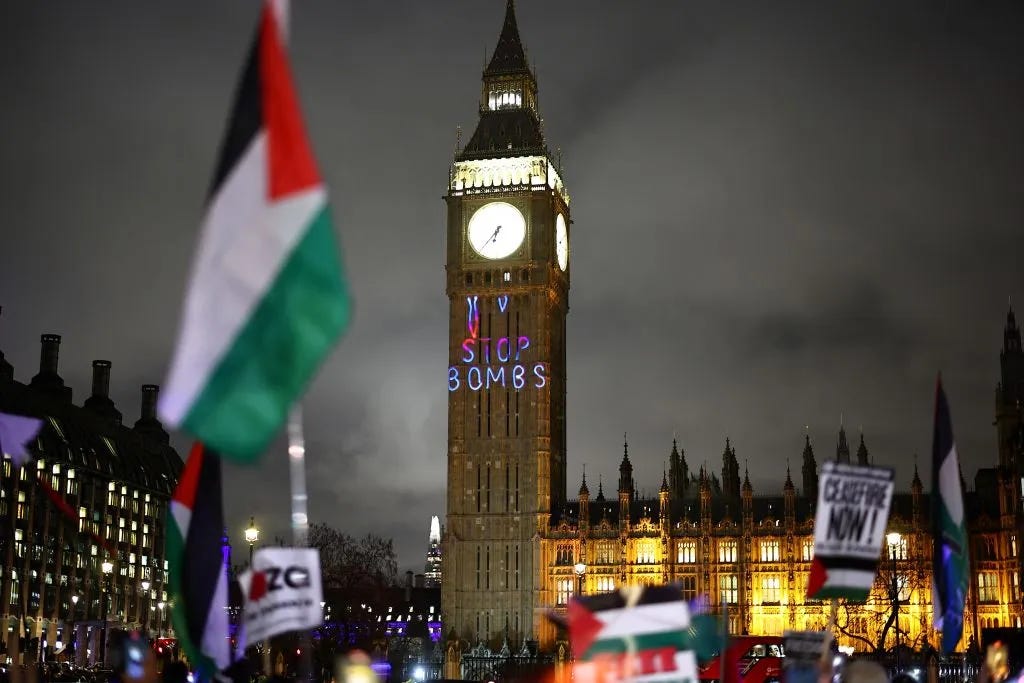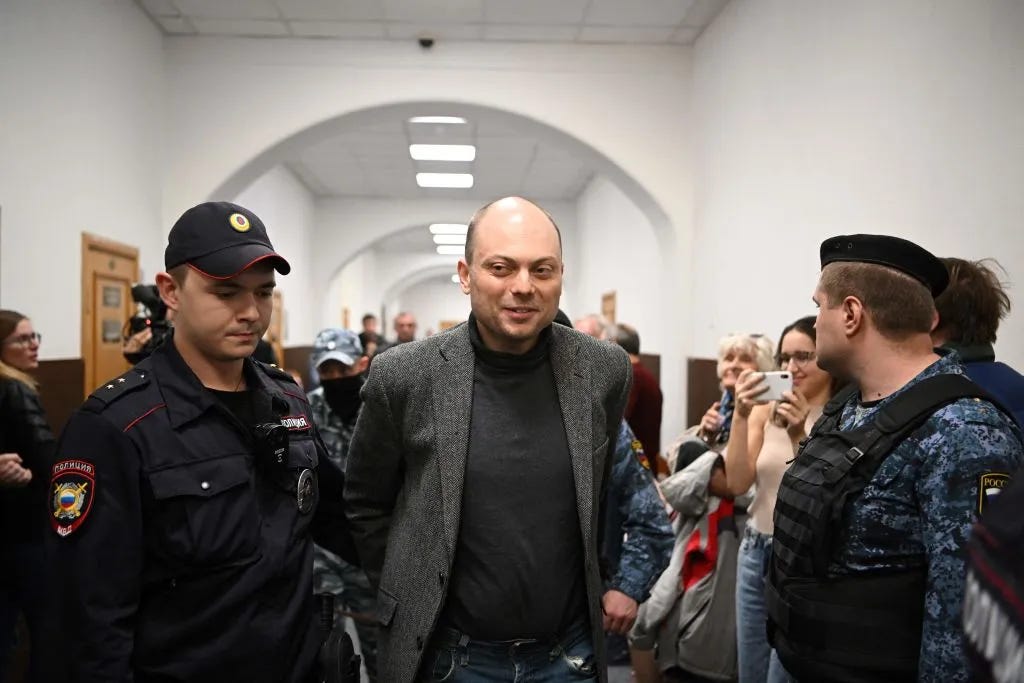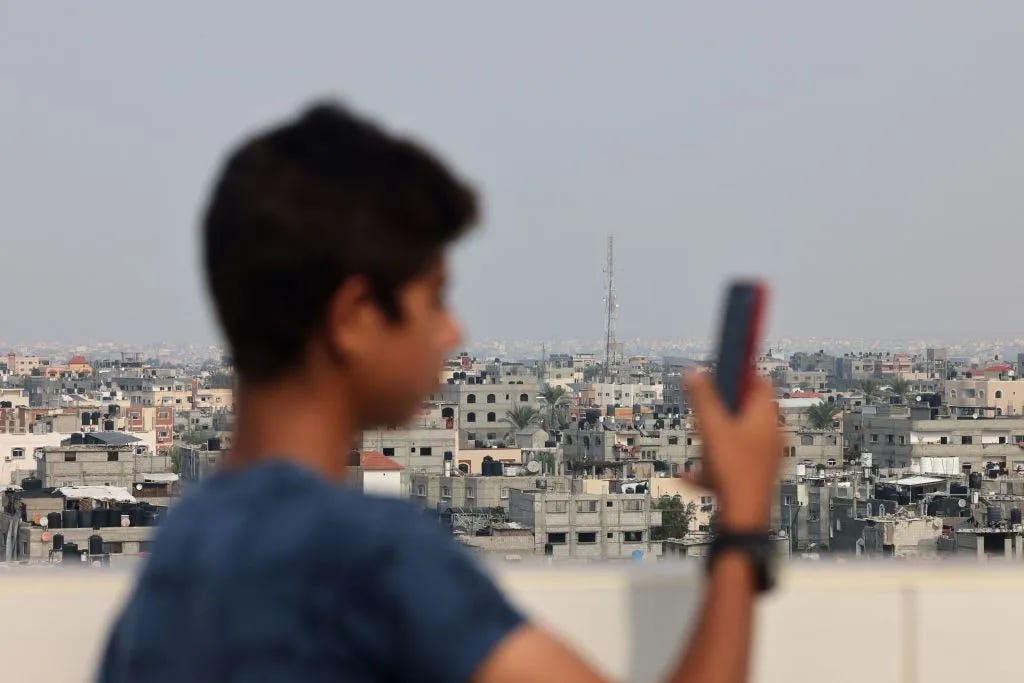Hello, and happy Friday.
This correspondence comes to you (somewhat belatedly) following a whirlwind week in the Hashemite Kingdom of Jordan, where I spent some much-needed quality time with family and friends in Amman.
Despite having only visited the Jordanian capital only a year ago, there were some notable differences. The starkest was the fact that Coca-Cola and a litany of other brands I’ve long been accustomed to seeing in the Middle East were nowhere to be found—neither on my flight (during which Royal Jordanian mainly offered fruit juices) nor in any of the city’s many restaurants and cafes.
The reason: Gaza.
For months, international corporations such as the Coca-Cola Company, Starbucks, and McDonald’s have been subject to economic boycotts over their perceived support for Israel’s ongoing war in Gaza. The exact reasons that these companies are being targeted for boycott vary from firm to firm: In Coca-Cola’s case, it’s because its Israeli franchisee operates out of a settlement in the occupied West Bank. McDonald’s is being targeted similarly over its Israeli franchisee’s decision to give free and discounted meals to Israeli soldiers and rescue forces in the aftermath of Hamas’s Oct. 7 attack.
As I reported earlier this year, Starbucks isn’t technically on the official boycott list managed by the Palestinian-led Boycott, Divestment, and Sanctions movement (or BDS, for short). But it too has nonetheless been snubbed over a dispute the coffee chain had with its workers union over a pro-Palestine post last year.
These boycotts are having a substantive impact—not just on these companies’ sales, but on their reputations in a region where they were once beloved. When I first visited Amman, I was struck by just how popular Starbucks and McDonald’s were, the latter of which was often bustling with people late into the night. But on my latest visit, virtually every Starbucks and McDonald’s I peeked into was empty. At restaurants, Coca-Cola and Pepsi (which has also faced boycotts) were nowhere to be found; their names were even covered up on their ubiquitous branded fridges. In their space, local alternatives have emerged. I tried a couple of Coca-Cola duplicates while I was in Amman: A Jordanian version called Matrix and a Saudi version called Kinza.



I’m currently working on a story that will look at the longterm impact such boycotts stand to have on these brands and whether—after being perceived to be complicit in a genocide—they’ll ever be able to fully recover. Watch this space 👀
What I’ve written
Britain’s new Labour government has made several key pivots on Gaza since coming into power, including restoring funding to UNRWA and dropping the country’s plans to challenge the ICC over arrest warrants for Israeli leaders.
What remains to be seen, however, is whether this government will take the most substantive policy shift of all: halting arms sales to Israel.
So fraught has Britain’s position on this been that a Foreign Office diplomat recently resigned in protest of the inaction, warning that the country may be complicit in war crimes. “Each day we witness clear and unquestionable examples of War Crimes and breaches of International Humanitarian Law in Gaza perpetrated by the State of Israel,” Mark Smith, a counterterrorism official at the British Embassy in Dublin, told colleagues in a note announcing his resignation, the details of which were first reported by journalist Hind Hassan. “There is no justification for the U.K.’s continued arms sales to Israel yet somehow it continues. I have raised this at every level in the organization … As a fully cleared officer raising serious concerns of illegality in this Department, to be disregarded in this way is deeply troubling. It is my duty as a public servant to raise this.”
Keep reading: Britain’s New Government Comes Under Pressure to Pivot on Gaza
Two weeks after the historic prisoner exchange that resulted in the release of Russian opposition politician Vladimir Kara-Murza and more than a dozen others held captive by the Kremlin, I spoke with Kara-Murza and his wife Evgenia about the future of the Russian opposition and their work.
When my plane was taking off from Vnukovo for the exchange to Ankara, the FSB guy who was sitting next to me turned to me and said, “Look out the window. It’s the last time you’ll see your motherland.” I just laughed in his face and said, “No. I can tell you as a historian, I don’t only think, I don’t only believe, I know I will be back here. And it’s going to happen much quicker than you ever think.”
Keep reading: ‘Russia Will Be Democratic.’ Vladimir and Evgenia Kara-Murza on the Fight for a Free Russia
If your For You Page on TikTok is anything like mine, then you’ve probably seen the “please don’t scroll” videos coming out of Gaza. I wrote about how Palestinians are turning to social media to fundraise for their survival—and the challenges they face in sustaining the world's attention.
When these kinds of posts started appearing on For You Pages, many users dutifully obliged, helping to raise tens of thousands of dollars for Palestinian families seeking to crowdfund their way to safety in neighboring Egypt. Hundreds of families have already reached their fundraising goals, according to Operation Olive Branch, a volunteer-led grassroots initiative that helps verify and support fundraising campaigns for Palestinian families in Gaza. The popular crowdfunding platform GoFundMe tells TIME that since Oct. 7, fundraisers for those in Israel and Gaza (the platform doesn’t distinguish between the two in its data-gathering) received more than 5 million donations totalling more than $225 million.
Countless more are still fundraising, however—if not to afford the exorbitant fees needed to evacuate the Strip (the only viable route out of Gaza, the Rafah border crossing, has been shuttered for months), then to simply survive. But that task is proving all the more difficult. Many of those appealing for help on TikTok complain that their posts aren’t getting the traction they used to—an indication, perhaps, that they are being punished by an algorithm that eschews political content or, worse yet, that people have simply stopped watching.
Keep reading: On TikTok, Gaza’s Palestinians Plead to the World: ‘Don’t Scroll’
What I’ve read
A Palestinian American’s Place Under the Democrats’ Big Tent? • By Ta-Nehisi Coates in Vanity Fair
Maybe more than in any other year, this DNC has urged its various constituencies to highlight their identities and the collective pain that animates them. Racism, forced birth, land theft. It has been an exhibition of what the Palestinian scholar Edward Said called “the permission to narrate,” and it is that permission that Palestinian Americans have been denied. They have heard their names mentioned fleetingly by a handful of speakers but have not been granted the right to speak their names themselves. Perhaps that is for fear of what else a Palestinian American speaker might name. I cannot say that fear is unwarranted.
Harris Can Change Biden’s Policy on Israel Just by Upholding the Law • By Peter Beinart in The New York Times
The law in question has been on the books for more than a decade. It prohibits the United States from assisting any unit of a foreign security force that commits “gross violations” of human rights. Aid can be reinstated if the foreign country adequately punishes the perpetrators. Passed by Congress in 1997, it bears the name of former Senator Patrick Leahy — and it has been applied hundreds of times — including reportedly against U.S. allies like Colombia and Mexico.
As a former IDF soldier and historian of genocide, I was deeply disturbed by my recent visit to Israel • By Omer Bartov in The Guardian
Meeting my friends in Israel this time, I frequently felt that they were afraid that I might disrupt their grief, and that living out of the country I could not grasp their pain, anxiety, bewilderment and helplessness. Any suggestion that living in the country had numbed them to the pain of others – the pain that, after all, was being inflicted in their name – only produced a wall of silence, a retreat into themselves, or a quick change of subject. The impression that I got was consistent: we have no room in our hearts, we have no room in our thoughts, we do not want to speak about or to be shown what our own soldiers, our children or grandchildren, our brothers and sisters, are doing right now in Gaza. We must focus on ourselves, on our trauma, fear and anger.
What I’m thinking about
The Democratic Party’s unwillingness to allow any Palestinian American voices to take the stage at the DNC in Chicago. I really appreciated this insightful video by Peter Beinart, who says: “If you’re a party that claims to believe in equality and you have a very powerful and beautiful representation of Jewish and Israeli pain coming to speak to the convention, and you ignore the side in this conflict that has endured far, far greater destruction and suffering, you are essentially making a statement about human inequality.”
I would also recommend listening to Rep. Ruwa Romman, a Palestinian-American state lawmaker from Georgia, talk about the DNC’s decision in this thoughtful conversation with Mehdi Hasan.
Until next time,
Yasmeen






